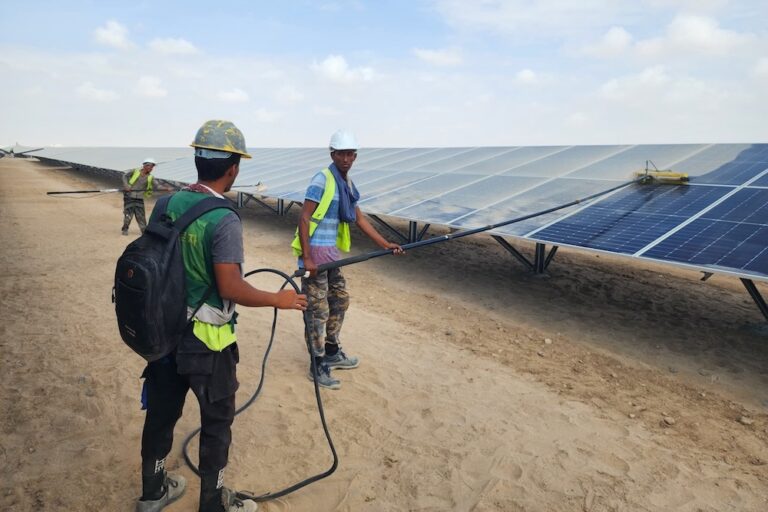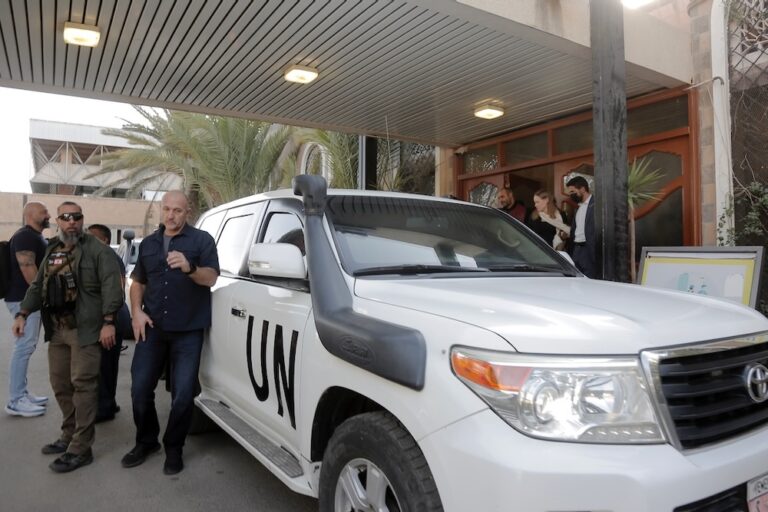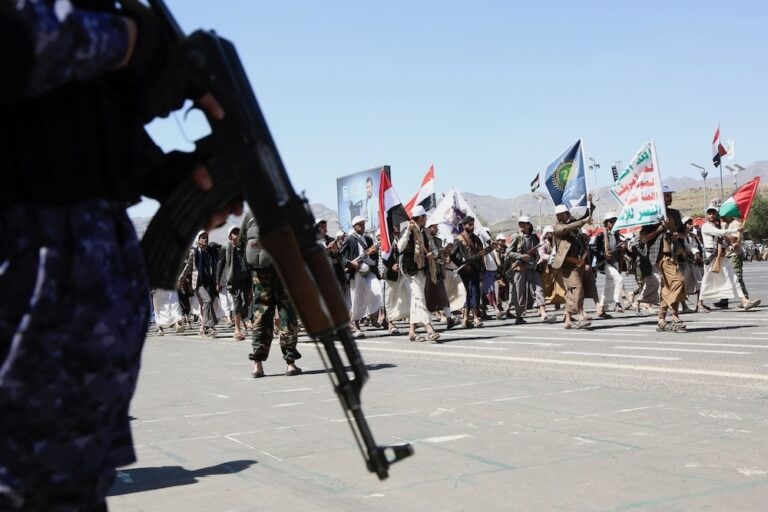This has been a grim year for Yemen's independent press, and the situation could get even worse in 2010, RSF said.
(RSF/IFEX) – This has been a grim year for Yemen’s independent press, the victim of a media war waged by the government under the guise of combating terrorism and sedition, and the situation could get even worse in 2010, Reporters Without Borders said, following the arrests of two more journalists.
“Physical attacks, interrogation, criminal charges, arbitrary arrests, prosecutions with no evidence, solitary confinement, ‘preventive measures’ and disappearances – such is the treatment reserved by the government for journalists who refuse to reflect its views on sensitive issues,” the press freedom organisation said.
“As the world turns its eyes towards Yemen, now the refuge of Jihadist militants, the international community must remind its government that, while it is legitimate to combat terrorism, there is no justification for cracking down on the press,” Reporters Without Borders added.
The first of the past week’s media arrests was that of Khalid Jahafi, a journalist who works for the opposition news website Alsahwa.net. He was arrested by security forces on 27 December 2009 while photographing clashes between police and supporters of southern Yemen’s independence and was beaten on the orders of national security chief Alaa Mohammed Al-Azraqi. There has been no news of him since then.
Aged 38 and based in the city of Al-Dhalli’ (200 km south of Sanaa), Jahafi also works for the pan-Arab TV station Al Jazeera at the same as being an education department lecturer. The security forces tried to seize the education department building two months ago in an unsuccessful attempt to arrest him.
The other media arrest was that of Shafi’ Al-Abd, a journalist with the newspaper “Al-Nada”, who was arrested along with four members of the leadership of the Federation of Southern Youth in Aden on 28 December by National Security officials. After being searched, they were taken to Khor Maksar prison in Aden province. A criminal investigation department report accused Al-Abd of forming a party hostile to national unity and security.
A court in Lahij province has meanwhile postponed journalist Iyyad Ghanem’s trial indefinitely for the second time. His lawyer says his health has deteriorated as a result of the hunger strike he has been waging for the past two weeks to protest against the judicial system’s slowness. He has been detained for the past six months for filming a meeting in the town of Korsh organised by supporters of the southern separatist rebels.
Commenting on the latest arrests, Women Journalists Without Chains president Tawakkol Karmen said: “People no longer enjoy the right to free expression in the southern provinces. The government does not want anyone using this right to condemn the situation of the oppressed in Yemen.”
An alliance of civil society organisations, Karmen’s group demonstrates every Tuesday to press for the reopening of the “Al-Ayyam” and “Al-Masdar” newspapers, the release of all imprisoned journalists (including Fouad Rashed and Mohammed Al Saqladi as well as Khalid Jahafi and Iyyad Ghanem) and the release of kidnapped journalist Mohammed Al Maqaleh.


